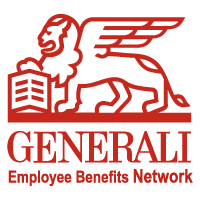Working through cancer: Better line manager support
Only just under half (46%) of HR/line manager attendees at our recent webinar said they’d feel semi-comfortable having discussions with an employee who is worried about cancer.
Slightly less (42%) said they wouldn’t feel informed enough about what someone going through cancer is experiencing.
Offering the right support includes helping employees with a cancer diagnosis stay in work, where that is their preference.
Improvements in cancer treatment and survival rates mean that an increasing number of employees want or need to continue working after diagnosis.
Wellbeing at work
It’s generally understood now that work satisfies many more wellbeing needs for employees than just the provision of an income; from connections with others to a sense of identity and self-esteem.
However, research tells us that achieving and sustaining successful return to work is much harder than it should be.
Fewer than two-thirds of employees with cancer have returned to work or are still working a year after getting a diagnosis.
Of course, some of the barriers people face are clinical or psychological.
But, as our own webinar attendee data indicates, it might also be the lack of conversations with their line managers.
That said, an encouraging number of attendees seem aware that help and support is available in the workplace, indicating that, private medical insurance (PMI) aside, the top two places they would signpost are occupational health (69%), closely followed by group income protection (63%) and the vocational rehabilitation expertise that is embedded within that proposition.
What does better support look like?
Alex Freeman, vocational rehabilitation consultant and owner of Absence Management Solutions, one of our trusted early intervention partners, says that every person’s experience is different.
So, it’s vital to deal with each person as an individual, according to their needs.
Freeman was diagnosed with endometrial cancer in 2023.
Running her own company, she worked throughout her diagnosis and treatment, to varying degrees.
As a vocational rehabilitation consultant, Freeman has supported many individuals over the years, who are returning to work following cancer treatment, or who want to remain in work while having treatment.
“Being at work during this stage was really good for me. It was a good distraction,” said Freeman.
“If I wasn’t working, this overwhelming anxiety would rise up. But everyone’s different. And I want to emphasise this – I wouldn’t talk to somebody with cancer and say you have to be at work.
“I could work and function quite well. But I did things differently. I didn’t do meeting after meeting. I took breaks and made sure I finished at 5pm. When I had a hospital appointment I’d make sure I didn’t schedule anything else for that day.
“And when I was having chemotherapy, I wouldn’t work for the week after that, but would then ease back into work as I began to feel better,” said Freeman.
“So, how can a manager support someone when they perhaps don’t know what they’re going through. Asking them what they need is a good start, saying ‘how can I help?’, ‘What can I do to support you?’, ‘What would make you feel comfortable?’.
"Listen, consider any changes needed – for example, customer facing work can be temporarily difficult – and just be aware that they will go through ups and downs.”
Kay Needle, early intervention and rehabilitation expert at Generali UK Employee Benefits, who was diagnosed with cervical cancer when she was just about to turn 25, said the pre-diagnosis stage can be a scary time.
Although an employee might not proactively reach out to their line manager at this time, that doesn’t mean that it’s too early – or inappropriate – to just ask how they’re doing.
“Your employee is probably taking time off for lots of appointments for check-ups and biopsies. They’re likely to be distracted, worrying about the results. This was the time I needed the most support, during the pre-diagnosis stage,” said Needle.
“My line manager was really supportive in terms of just listening and providing reassurance at that stage, also emailing me with the resources available via the workplace, such as links to the EAP.
“When I was waiting for the test results, I hadn’t slept and I was getting really nervous, so I called the EAP and was connected with a counsellor immediately. She was wonderful and said to me it was normal to be scared.
“This was incredibly helpful because, up to that point, everyone I’d spoken to was saying, be positive, I’m sure it’ll be fine, stay strong and only worry if it happens etc,” said Needle.
“I also spoke with my line manager about taking time off and she said: you could do that, but you’re a sociable person, you live on your own and you’ll probably just sit and worry all day.
“If that’s what you think you need, that’s fine, but you could also stay in the office, regardless of whether you do any work, you’ll be around other people. I stayed and before long I was working.
“And, actually, that distraction – that meaningful purpose of being at work – was definitely the right thing for me. I think it’s all too easy for line managers to instantly default to not even having a conversation, just saying take the time off,” she added.
Working through cancer: 3 main barriers
It’s worth noting that cancer care charity Macmillan has identified the three main barriers people face:
- A lack of information and advice about the impact of cancer on work, such as information on their rights under the Equality Act 2010, and advice to understand what is meant by ‘reasonable adjustments’.
- A lack of support or understanding from employers. Line managers need to be upskilled and equipped to have conversations with employees to discuss their needs and properly support them.
- A lack of specialist vocational rehabilitation programmes. Macmillan found that healthcare professionals tended to not raise work with patients. They advise that referral to vocational rehabilitation will allow for an assessment of individual needs, access to appropriate interventions and rehabilitative treatment, if required.
To access a free recording of the full webinar, entitled ‘Cancer: When support to stay in work makes sense’, please email [email protected].
Disclaimer: All information contained herein represents the views and opinions of the author as of the date of writing and is provided for general information only. Nothing herein constitutes or is intended to constitute financial or other form of advice and no individual should rely upon the information provided in making a specific investment decision without first seeking independent professional advice.
Supplied by REBA Associate Member, Generali Employee Benefits Network
Generali Employee Benefits' solutions are to protect and enhance the wellbeing of their workforce.








